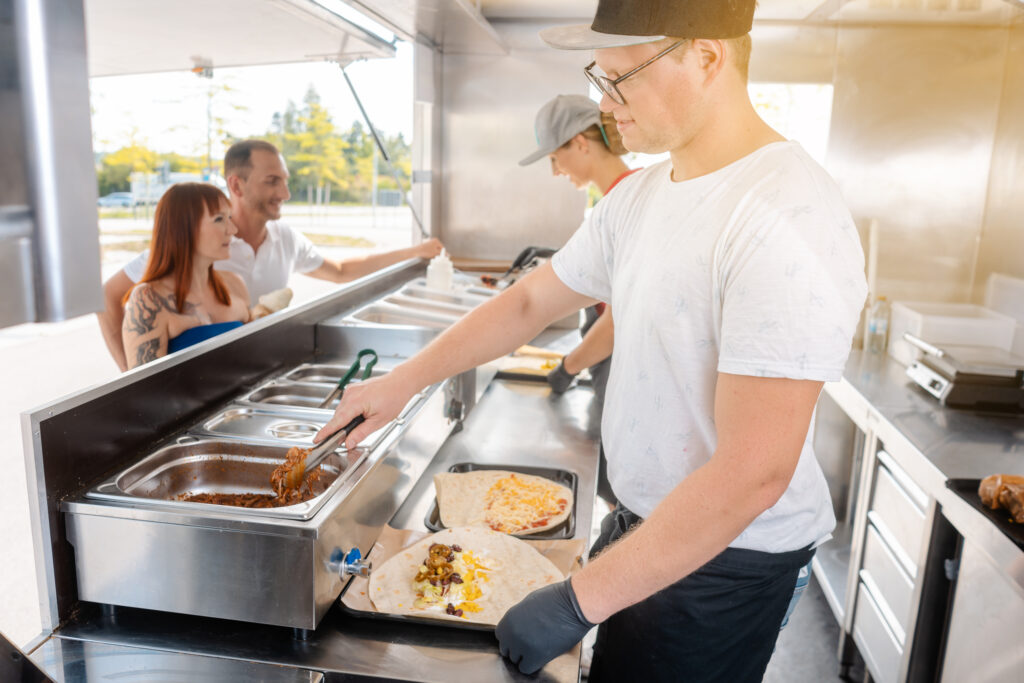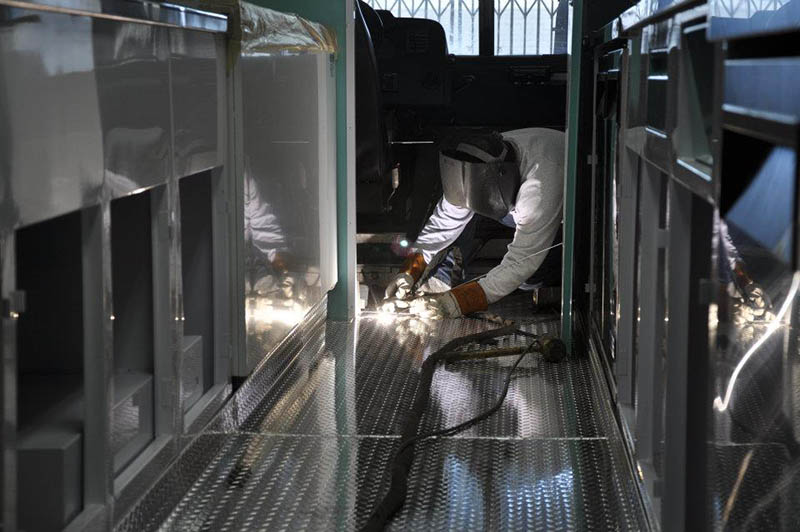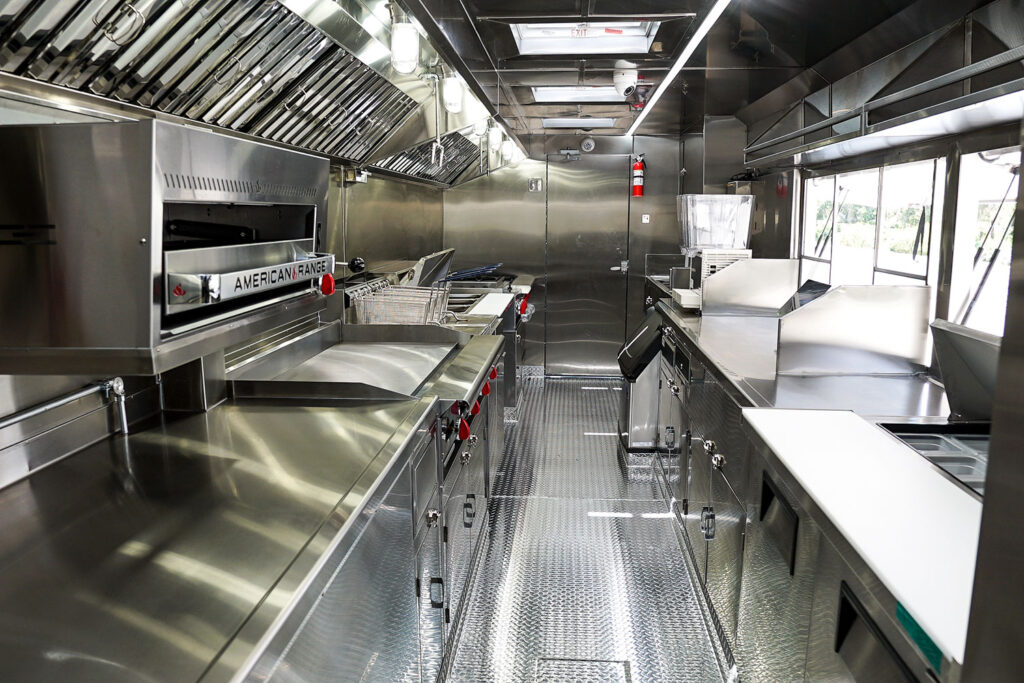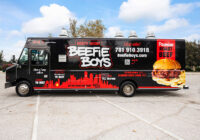Food trucks are the epitome of efficiency, facilitating an entire kitchen operation in a single 16–22-foot truck. Every appliance, storage feature, working surface, and design element must be perfectly balanced with every other.
Good flooring is essential, because it sets the proper foundations (pun intended) for efficient, safe, and comfortable food truck operations. So what’s the secret to selecting the right food truck flooring?
Food Truck Flooring Checklist
Take a short moment to picture what the food truck’s floor will endure and the material properties required. The most effective food truck flooring material should fit several checkboxes, being:
- Strong enough to hold heavy commercial appliances
- Resistant to stains and cleaning solutions
- Slip-proof, but easy to move around on
- Largely waterproof and easy to dry
- Built to withstand intensive use
- Easy to clean
- Inflammable
- Comfortable
It may seem like our list of suitable materials is quite narrow, but it still leaves several options available.
4 Great Options for Food Truck Floors
Depending on workflow and the type of foods and drinks you’ll be making, at least one of the food truck flooring options listed below should hit the sweet spot (and not just for dessert trucks).
1: Rubber Flooring
Industrial-strength rubber flooring is strong enough to support major appliances without puncturing. It’s built to withstand high temperatures, and restaurant-grade rubber has antimicrobial properties. Rubber flooring also provides excellent traction, even when wet.
Pros
- Superior traction
- Easy to maintain
- Good cushioning for better ergonomics
Cons
- Can create a slight, yet noticeable, rubber scent
- Higher costs
2: PVC (Vinyl) Rolls
Vinyl rolls are highly durable and come with a few surface-texture options. Note that certain higher-traction choices are harder to clean thoroughly. Some brands make their vinyl roll flooring with recycled content, and others specialize in low VOCs, high microbial resistance, and other health considerations.
Pros
- Cost-effective
- Chemical- and stain-resistant
- Choice of traction
Cons
- No cushioning
- Slightly more damage-prone
- Harder to replace
3: Soft PVC Tile
Made from the same type of PVC as vinyl rolls, soft PVC tile carries the same benefits, but with greater customizability (though without the seamless, continuous surface). Soft PVC tile is an excellent choice for those whose culinary appetite is matched by equally aesthetic tastes.
Pros
- Beautiful patterns
- Easier to replace damaged sections
- (See above)
Cons
- Potential for water to seep through cracks after enough wear
- (See above)
4: Sheet Vinyl
Unlike vinyl rolls, sheet vinyl is incredibly quick and easy to install. You simply lay it and watch it flatten out of its own weight. That’s because it also has a thicker soft backing material, for improved comfort. Sheet vinyl also has numerous styles to choose from.
Pros
- User-friendly
- More cushion than other vinyl options
- Stylish choices
Cons
- Not as chemical-resistant as the other vinyl options
- Potentially costly to replace
Customizing Your New Food Truck From the Ground Up!
At Legion Food Truck, we do more than build new custom food trucks, serving as an experienced creative partner and business mentor for our clients. For a true turnkey solution that handles all the custom manufacturing, business filings, and even financing services, don’t hesitate to reach out, and tell our food truck pros about your mobile culinary dreams.








